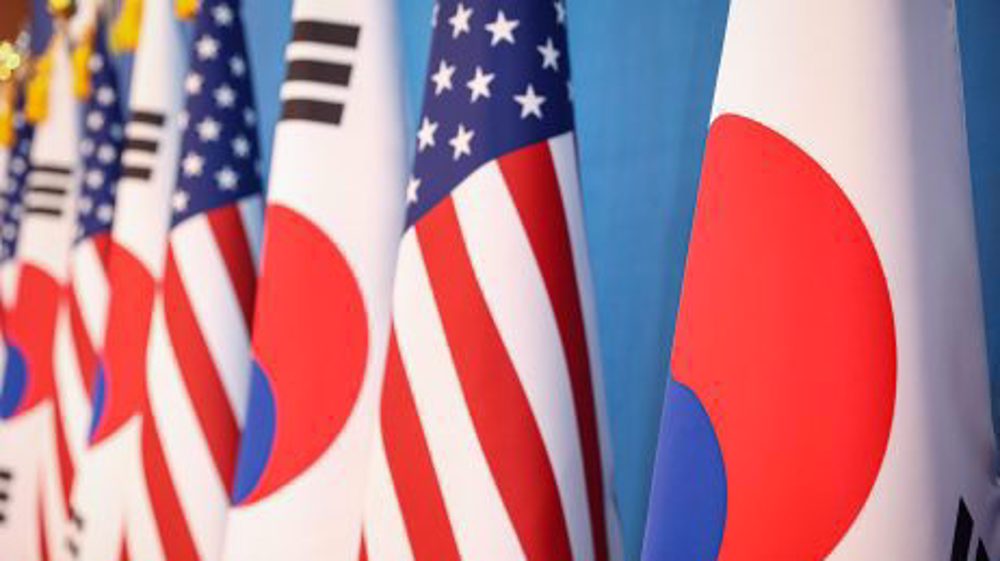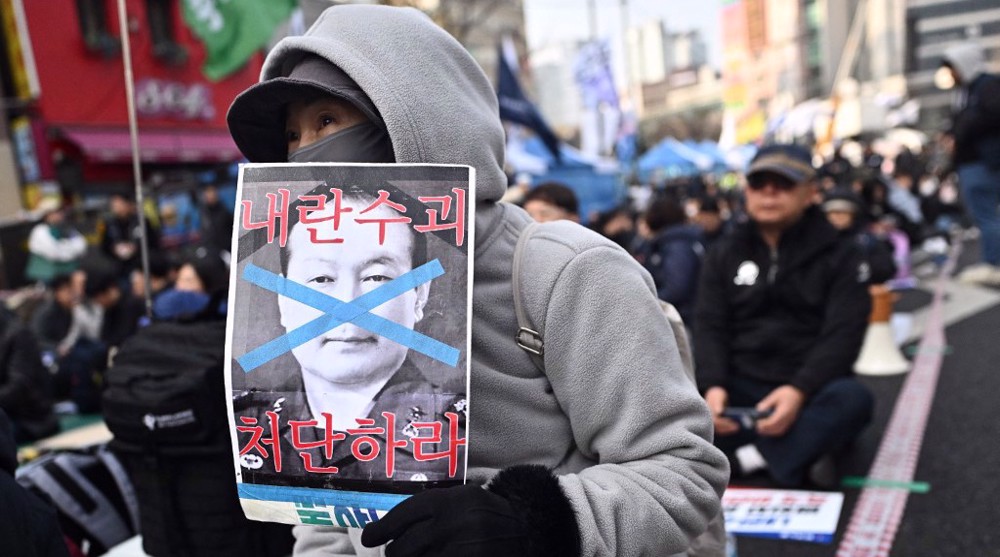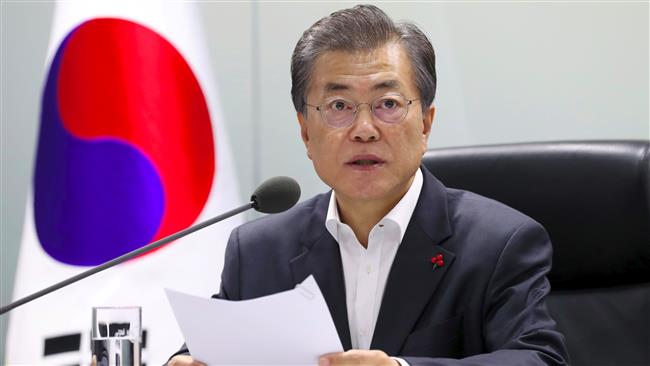South Korea president calls sex slave deal with Japan ‘flawed’
South Korean President Moon Jae-in has described as “flawed” an agreement inked in 2015 by his predecessor and Japan to settle the issue of the wartime sexual enslavement of Korean women by Japanese troops.
“It has been confirmed that the negotiations on the ‘comfort women’ issue between South Korea and Japan in 2015 had significant defects in terms of procedures and content... It is regrettable but something that we can’t circumvent,” the South Korean president said in a statement read out by his spokesman on Thursday.
“Comfort women” is a euphemistic term used in reference to the thousands of women and girls, mostly from China and South Korea, who were forced by the Imperial Japanese Army to serve in frontline military brothels during World War II.
Moon said the deal, which he said suffered from “serious flaws, both in process and content,” had failed to meet the victims’ demands. He described the agreement as a “political agreement that excludes victims and the public” and hence, violated general principles in international society concerning the resolution of historical issues.
The South Korean leader’s comments came a day after a state-appointed panel announced the outcome of a five-month review of the landmark agreement. It said that the administration of former president Park Geun-hye had kept parts of the deal secret, including Japanese demands that Seoul refrain from using the term “sexual slavery” and work out a specific plan to take away a bronze statue representing sex slaves from in front of Japan’s Seoul Embassy.
“Along with citizens, I, as president, make it clear again that the comfort women issue can’t be settled through the deal,” Moon further said.

When they sealed it in 2015, both Seoul and Tokyo declared that the deal was “final and irreversible” as long as parties fulfilled their obligations.
Under the deal, Tokyo formally expressed its apology for its colonial-era atrocities and accepted to contribute 1 billion yen (8.9 million dollars) to a charity dedicated to supporting the victims.
It is not the first time that President Moon has expressed reservations with the agreement. During his presidential campaign, he vowed to revise the deal. Back in May, he said that the agreement needed to be revisited. A month later, he once again cast doubt on the deal, saying the majority of South Koreans “cannot emotionally accept the comfort women agreement.”
Japan, for its part, has already voiced its firm stance on the controversial issue, saying any attempt by its neighbor to revise the deal would make bilateral ties “unmanageable,” with Japanese Foreign Minister Taro Kono saying the agreement had resulted from “legitimate negotiations.”

US-South Korea trade tensions

China ‘firmly’ opposes countries making trade agreements with US at its expense

South Korea's court removes president over martial law controversy
Chinese president offers condolences to Iran over deadly port explosion
A new dawn in the Sahel: President Traore and Burkina Faso’s anti-imperialist rebirth
Hopeful signs in Iran-Africa ties as Tehran hosts third summit
Sexual exploitation weaponized by Zionist assets to demonize Britain's Muslim community
ICC bars chief judge from disclosing Israeli arrest warrants: Report
Parl. speaker: Iran won’t be swayed by Israel’s ‘delusional’ rhetoric
Extremist Israeli minister orders closure of al-Quds Fund and Endowment office
British firm supplying engines for Israel's killer drones: Report







 This makes it easy to access the Press TV website
This makes it easy to access the Press TV website